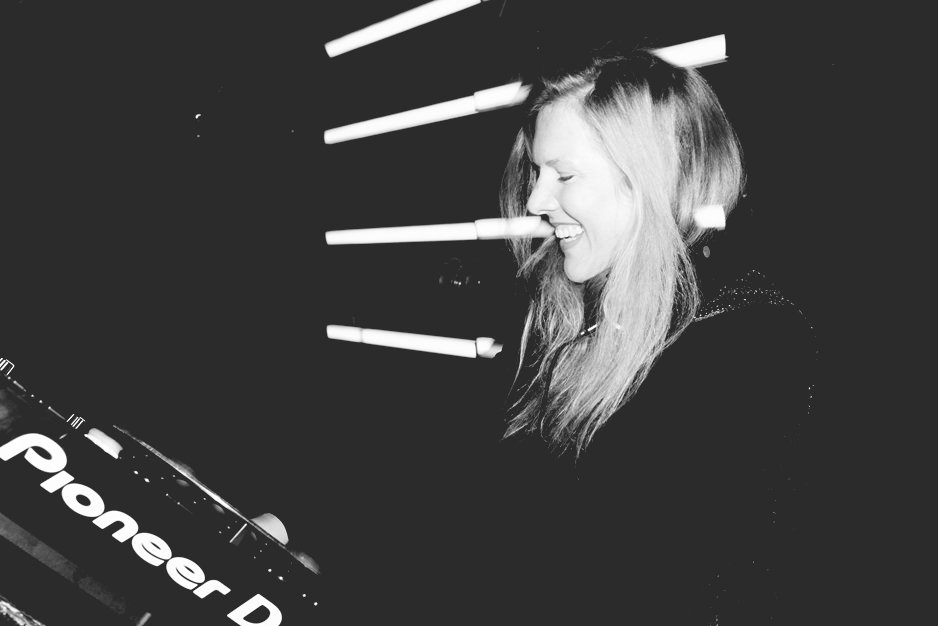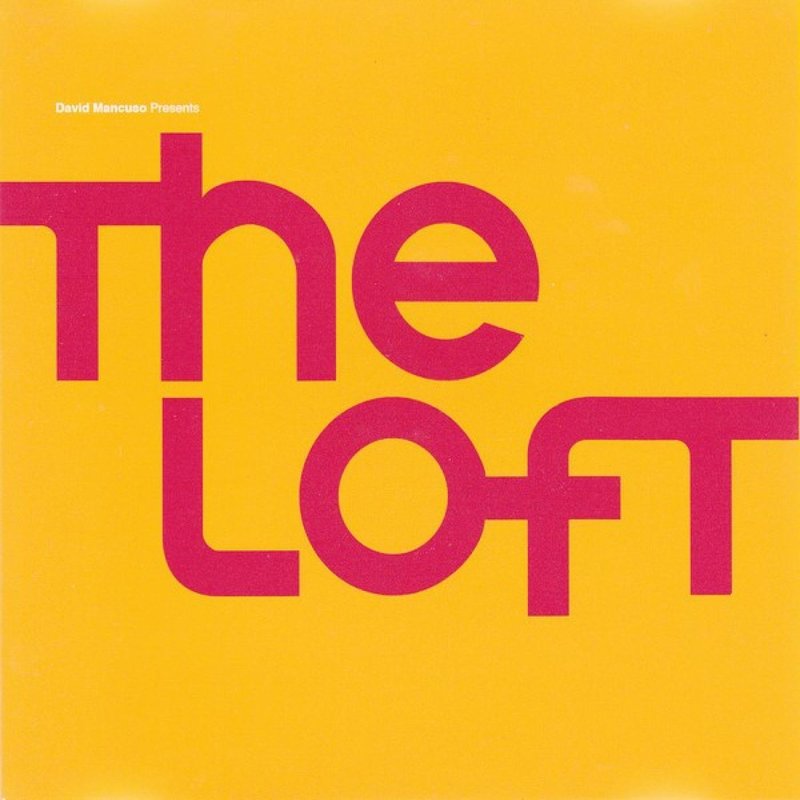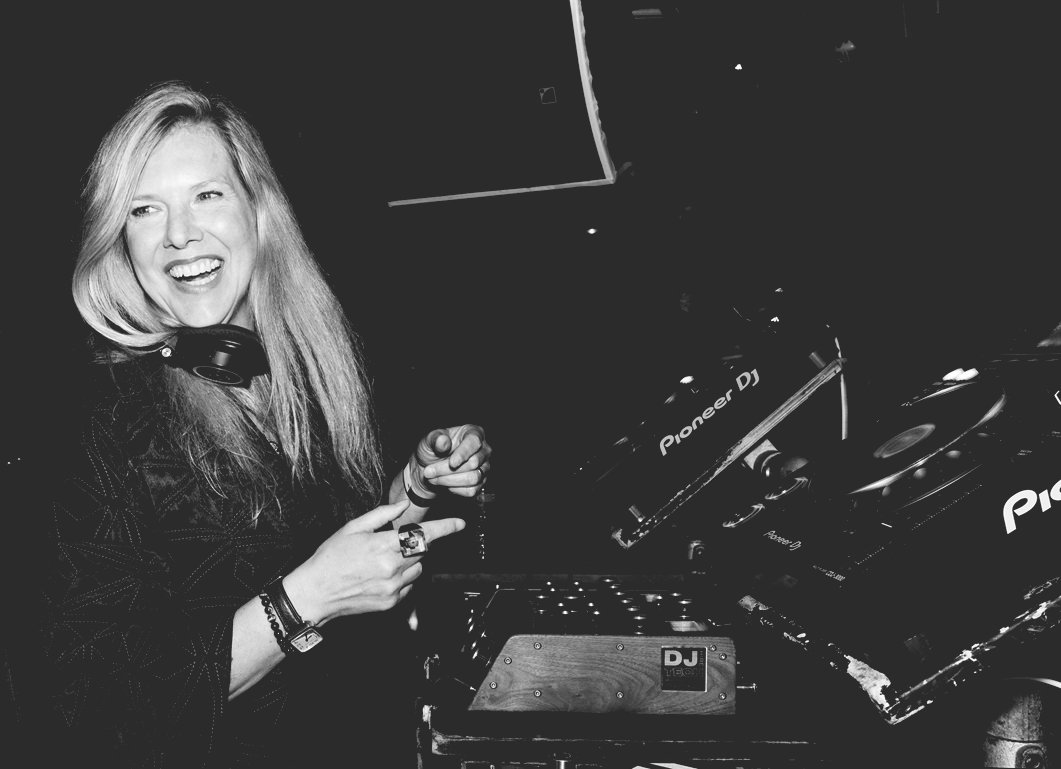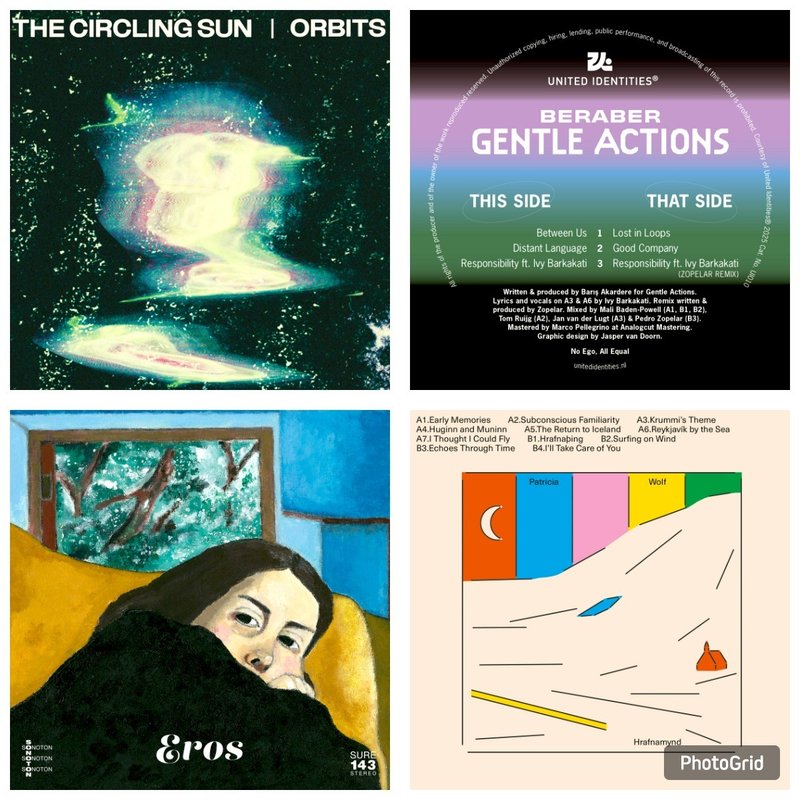
Colleen 'Cosmo' Murphy is a busy woman, her diverse musical projects just keep coming, but she always keeps a grounded connection to her roots. Her depth of knowledge and passion for the music came through in this conversation....
We need to start with one of your most recent projects, the remix you’ve done for The Cure. Remixing seems to have become more of a focus for you recently, is that a fair observation?
Yes ,that is a fair observation. I began producing original music in 1998 and then began remixing first for my label Bitches Brew and then for other projects. Then for a few years I put more energy into Classic Album Sundays and didn’t do any remixes following my Fat Freddy’s Drop ‘Mother Mother’ remix in 2014 until Roisin Murphy’s ‘Murphy’s Law’ in 2020. Since then the remixes have come flying in. I may have manifested it as I had read and worked with a book called The Artist’s Way and realised I had to make music again. My Cosmodelica remixes don’t have a specific cookie-cutter sound but reflect my many musical moods such as indie-dance (The Cure, A Certain Ratio, Mildlife), downtempo (Phenomenal Handclap Band, Saint Etienne, Cantoma, Jacob Guresvitch), mid-tempo chuggers (Bryony Jarman-Pinto and my forthcoming Santino Surfers remix) and then charged dancefloor numbers like my remixes for Lady Blackbird, Secret Night Gang and my recent Street People remix for Spring Revisited. I feel all these different musical moods serve my multi-faceted musical personality and ultimately my aim is to serve the song.
Taking on a band with such a distinctive sound and long history as The Cure, was it a little challenging? I guess also a lot of fun - how did that one come about? Did you interact at all with the group in the course of putting it together?
It was a lot of FUN and made me feel like a teenager all over again. The day Robert Smith got in touch, I had been writing about my teenage musical passions and The Cure were one of my favourite bands. I was floored when Robert Smith asked if I would like to remix a song from Songs of a Lost World for a compilation of remixes to benefit War Child UK. In fact, I was speechless. It was a quick turnaround and I already had studio time booked with Joe Goddard (Hot Chip) and Al Doyle (LCD Soundsystem) as we are working on a new project together called Electrick Eden. I felt the three of us should take it on together not only because it’s a great debut for our own project, but also because musically they are the perfect partners for what I wanted to be a remix for Cure fans – harkening back to the remixes I have played and enjoyed over the years. Robert Smith and I emailed each other directly throughout the project as he is hands on with all aspects of The Cure – especially the creative side. It was a delight working with him and when I listened to the stems of ‘And Nothing is Forever’ and heard his voice without any effects, the hair rose on my arm. He still sounds fantastic. Remixing The Cure is certainly a career highlight.
You must get a lot of offers, how do you decide what to take on? Is there an act you just couldn’t say no to?
Thankfully I do get quite a few offers and there are two considerations. Pragmatically, budgets and deadlines need to be considered. But more important is the creative consideration – it’s down to whether I like the song and/or have a strong idea that I feel will either elevate the song or provide a good alternative to the original. Is there an act I just couldn’t say no to? Okay let’s throw this out into the universe whilst sticking to my teenage daydreams: New Order.
Radio has been a huge part of your story too, and although labels are restrictive, you’ve described yourself as a broadcaster. Can you explain what that term means for you?
Being a broadcaster means you host radio shows live. Pre-recorded mixes with a few announcements talking about your DJ gigs does not a broadcaster make. Radio has been the one constant throughout my life since 1982, the year I started DJ-ing on our 10-watt high school radio station WHHB. Since that time, I have nearly always had a regular radio show – mostly weekly. Sharing new tunes, discovering old tunes, telling stories behind the records and the artists is my passion as is communicating directly with my listeners.
When the first lockdown took place in March 2020, I considered turning in pre-recorded shows for Worldwide FM to be broadcast at a later date. But my husband reminded me that I am a broadcaster and, especially at a time when people were separated from one another, it was my duty to host shows live and create a space where people can come together through music. Since that time, I have regularly broadcasted live from my record room and a whole community has evolved around my Balearic Breakfast show (hosted Tuesday mornings on my Mixcloud Live).
Norman Jay on Radio London, Gilles on Kiss, The Essential Mix, I could go on from a personal perspective…. radio was really formative for me too and still is.
Who were the DJs and shows you listened to that inspired you over the years? When did you think “I can do this too”?
I got my first transistor radio when I was 7 years old and was instantly besotted. Growing up in the suburbs of Boston was hugely significant as we had great radio. Boston has more universities than any other American city, so we had an array of great college radio stations that featured many musical subcultures. And because there were more students, the commercial radio stations were more adventurous.
My favourite was WBCN which started as a freeform radio station the radical year I was born – 1968. The daytime programming was relatively edgy, but it was the Sunday night show ‘Nocturnal Emissions’ hosted by Oedipus that turned me onto artists like Brian Eno, The Cure and Laurie Anderson. WBCN also had women DJs from the start and hearing women’s voices on the air made broadcasting a possibility. When I first started on WHHB, I ran away from the microphone as it went ‘live’, but over the years I gradually relaxed into it.
You’ve worked extensively in that medium, even basically run a station or two, would you ever consider starting your own? What would it be like?
In the 80’s I was the first woman Program Director at one of the most significant college radio stations, WNYU and I enjoyed working with other presenters and formatting the schedule. Afterwards, I hosted and produced a weekly music magazine show that went out to 200 college radio stations and basically did it on my own which included programming, conducting interviews, script writing and engineering (I became an expert editor on reel-to-reel tape). Although I have worked on other aspects of radio aside from presenting, I don’t have any interest in running a radio station as there are too many bureaucratic processes. However, I do love having complete control over my weekly show on my own Mixcloud Live channel. I have the freedom to host a 5-hour marathon show as there’s no one on after me and I can offer guest spots to whomever I wish. It also has a live chat group in which people gather from all corners of the globe and establish their own friendships and connections. Its wonderful to witness.
Playing out, there can’t be too many places you’ve not got to yet, but is there anywhere you haven’t played you’d like to?
Mexico as I backpacked there decades ago but I’ve never DJ-ed there. I’ve also never been to South America and would love to play in Brazil. Just putting that out there.
I feel like you go more on feel and reading the crowd when you play, but is there a plan to your sets at all? Is it like you have an end point in mind when you set out?
If I’m opening, I usually have a few starting songs in mind to establish the mood. If I’m coming on after another DJ, I don’t have a clear idea on how I will begin, but there are always a few songs I know I would like to squeeze into the set. Each time I DJ, I must have at least one tune I have never played before just to make it interesting and keep me on my toes. If I’m closing, I have a selection of ‘last songs’ from which to choose depending upon the mood. Basically, I do my homework in advance and then trust that the musical intuition and experience will kick in when in situ.
I’m sure it’s something you’re always asked, but it would be great to hear a little more about your history with David Mancuso and The Loft.
I started going to David’s Loft parties in his home on East 3rd Street in ‘Alphabet City’ in 1992 when he had restarted his parties after a long ‘sabbatical’. We became friends, he was a guest on my Soul School radio show, and then he asked me to musically host one-on-one alongside himself, and later fill in for him at The Loft. That was the start of a long friendship and working relationship that expanded even more after my move to London in 1999, the year we released the first volume of David Mancuso Presents The Loft, the compilation series we co-produced together for Nuphonic. David and I played together at parties around Europe, including Italy which was incredibly special for him because of his heritage. When we were in Rome we went to the Vatican and he borrowed my phone so he could call Sister Alicia, the nun who had looked after him at the children’s home where he had spent his early years. He was so proud!
In 2001, we hosted a party in London with Nuphonic to celebrate the second volume of The Loft compilation and one of the attendees later asked David if he was going to host more parties in London. David was keen and said he would only do it if I were involved and wrote, “I always feel better when you are there as you are the only person who can back up with the music and handle the audio equipment properly…the same as you did with the Loft parties in NYC many a time. I would not have taken on this project if you were not available to do this.”
During the years he musically hosted in London, he taught me the ins and outs of the sound system and we listened to hundreds of records together. He involved me in the other projects he was working on including his label The Loft Audiophile Library of Music, a film project, documentaries and more. We also spoke of his plans for the future of The Loft and his legacy and then he blew me away when he asked me to be ‘chair wo/man’ of the Loft board. He wrote, ‘You are the best person for it. You have proven to be a good friend to me and the Loft. You are also involved in the music scene – dj/producer/owner of a dance business/audio awareness…the list goes on. You have all the ‘know how’s’ as I do with all aspects and are faithful to the principals. Also you are a woman and this gives the “yin-yang” balance to the over all concepts.”
I’ve heard you talk about ‘Life Energy of Music’ by John Diamond in the past, can you explain a bit about what makes that book important, and how it relates to what David did and you continue to do?
In the early days of our friendship, David told me about The Life Energy of Music book and gave me copies of the chapters he felt were important: Transmitting the Pulse and Female Conductors. I later bought my own copy and read it cover to cover and learnt a lot, even though I don’t entirely agree with Diamond’s musical preferences (he didn’t have great things to say about rock music). But the overall principle is something I wholeheartedly believe in and try to transmit via all of my musical endeavours whether it’s a DJ set, a radio show, a Classic Album Sundays listening session or a remix: harnessing the healing force of music with the intention of raising people’s vibrations or ‘life energy’. It’s powerful.
You’ve discussed at various times in the past about the mentorship you had with David, have you taken on that role with any younger DJs or producers? What do you think makes a good mentor?
I’m blessed to have had wonderful mentors like David and Francois K and I love being a mentor, myself. A few DJs I have worked with include Tina Edwards, Sway of the Verses and Love Injection. I also like to meet up with DJs who are just embarking upon their career from young women like Minna Honey to others who are a bit further on their journey like musclecars. I remember what it was like – the apprehension, the excitement, the wonder – and I also recognise how far I have come and how much I have learnt and just use that experience to make suggestions and guide people who are embarking upon their journey. A good mentor listens and makes suggestions based on their own experience. Helping others also helps me creatively recharge.
The Nuphonic Loft compilations were where I got my introduction to a totally different world of music and way of selecting it - so different for me, after going out to straight ahead house and techno nights. How did they came into being? Was it easy to convince David to get involved?
In 1998 I was asked to do my first compilation for Nervous Records, New York Afterhours: A Later Shade of Deep. It was a great break and I mixed it all on vinyl in one take on my trusty Bozak right in front of the A&R man, Stewart Upchurch. It got me thinking that a Loft compilation could really help David who was financially suffering at the time. He had just lost a building and was jumping from space to space in the recently gentrified East Village and his parties weren’t always well-attended. I was helping him by bringing in new records to keep the music fresh and filling in for him as a musical host. I was also spreading the word that The Loft was still happening on my Soul School and Club 89 radio shows and even gave out David’s phone number on the air!
At that time, David’s influence on club culture was not widely known but was transmitted via Chinese whispers – even the then new ‘world wide web’ didn’t have much information on the significance of The Loft and David. I felt a compilation would do two things – get David’s story out there and give him the ‘green energy’ he so desperately needed. My initial idea was to make some introductions, but when I asked him if he would ever be up for doing a compilation, he quickly replied, ‘Only with you.’
It was 1998 and I was preparing to move to London and felt a British record label would be better as dance music was much bigger in Europe than it was in America. I had a relationship with Nuphonic, as I had worked for Joe Claussell’s record label Spiritual Life Music and the two labels promo-ed for one another. When I ran the idea past Nuphonic label owner Dave Hill, he jumped at the opportunity and David Mancuso Presents The Loft was born. The compilations were a huge success. David and The Loft then became known throughout the world and his parties in New York resumed their former success as old Loftees returned and new Loftees were inducted.

The building of a community has been central to what you’ve done over the years, with the Loft and now with Balearic Breakfast…how would you describe your tribe, and what does community mean to you?
The Balearic Breakfast family and the Classic Album Sundays community are comprised of people from all walks of life and from all corners of the globe who are united through their obsession with music. They are musically open-minded and supportive not only of myself, but also of one another. Community is everything to me. I have always enjoyed sharing musical knowledge and having musical conversations and getting to know people who are musically like-minded. I learn something and they learn something and we all grow together. I’m very thankful for my supporters as they have given me the means to pursue a musical vocation and I do not take that for granted.
I know you’ve described the role of playing music at the Loft as being a musical host, can you talk about the difference between that and the DJ?
A musical host refrains from manipulation of the music and does not mix, EQ or pitch the records. A DJ does manipulate the music with these techniques.
DJing/music/dancing it’s about having fun and losing yourself, right? Have you seen changes in the make up and energies of the dancefloors you’ve played for over the years? Looking at social media, maybe a little too much, you’d think dancing is a dying art and floors are becoming more static, what’s your experience? Do you think venues could or should change, to make the dancefloor what it was again?
Yes, I have seen a massive change over my last 35 years of DJ-ing and now there seems to be two DJ environments – the party and the performance. The performance is usually on a stage at a festival or big club and there are lots of phones and Instagram moments and that’s the nature of the beast. I don’t feel particularly comfortable in that arena and its certainly not my native habitat but can do it to some degree. However, I’m more of a party DJ and less of a performance DJ as I still haven’t fist pumped or thrown my head back and raised my hands like Christ on the Cross. Nor do I jump (it’s strange that the punk pogo is the new dance music move as it just isn’t funky). But I do dance and sing the incorrect lyrics as I always have whether on stage or musically hosting at a Loft party. I feel fortunate, as most of the parties I play aren’t inundated with phones. At our London Loft parties we ask people not to use phones on the dancefloor as we want the dancers to be immersed in the moment rather than looking back at a moment that they didn’t actually experience at the time. There are a few clubs and parties that ban phones from the dance floor and that’s a good move. We need to encourage the feeling of presence and the beauty of a communally shared ethereal moment.

Can we talk a little about Classic Album Sundays? It keeps marching on. But it feels more and more like albums in the tradition of Innervisons, Astral Weeks, and maybe more recently Blue Lines or Club Classics are becoming less and less common - do you think that’s fair?
I don’t feel that is a fair appraisal in terms of musicality. There are still contemporary artists and bands making incredible albums from beginning to end and there always will be. What has changed is the musical environment in which they work. In the seventies, the music business was bigger than the film business until 1977 with the release of Star Wars. Major labels invested vast amounts of funds for both artist development and album recording. Popular music, in terms of rock n roll, was only a generation old and only a few major labels dominated. Because of this, there were fewer bands, but they were granted much more resource. When an album by Pink Floyd, Fleetwood Mac or Stevie Wonder was released it was on everyone’s radar as there were less albums coming out. As the music biz developed, there was a proliferation not only of musical genres but also of independent labels. Today people can make their own music in their bedroom and release it themselves on Bandcamp. There are hundreds, potentially even thousands of releases from around the globe every week. Because of this, individual artists get less spotlight that their seventies forebears. The playing field is much bigger.
Who are there artists/bands who are making those kinds of records today - complete collections of music and songs rather than a selection of individual tracks?
There are far too many to list but a few that immediately pop into my mind are Matthew Halsall and his entire Gondwana roster, Michael Kiwanuka, SAULT, Khruangbin, Greg Foat, Lady Blackbird… They have all released albums that are thematically and/or sonically unified and flow from beginning to end.
There’s a pretty long list of what you’ve achieved so far, was there ever a plan to get here? What’s next for you?
That’s a great question and the answer is I have never had a grand plan. I just put everything I can into what interests me, work hard and then other opportunities arise. I live by the accolade, the harder I work the luckier I become. I also try to put ideas into action rather than just talk about them as many people have great ideas but not many execute them.
What’s next? A musical memoir.
Colleen's remix of 'And Nothing is Forever' is available now as part of the Cure's Mixes of a Lost World compilation in aid of War Child.

